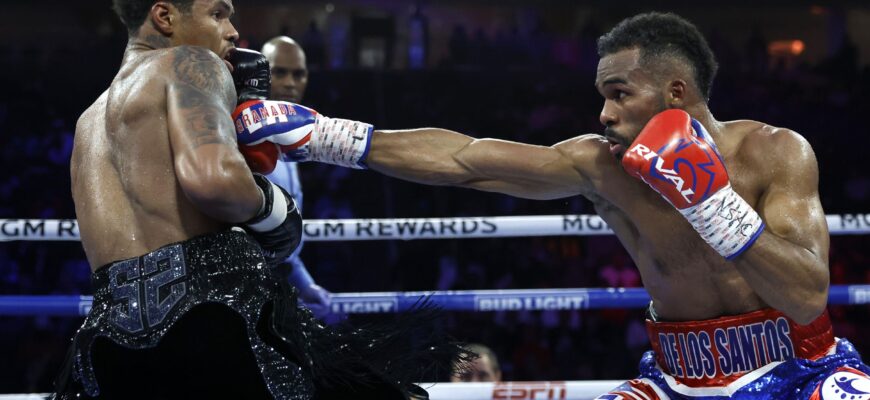In the ever-evolving theater of professional boxing, where legends are forged and legacies cemented, a provocative debate has emerged, spearheaded by one of the sport`s brightest talents. WBC lightweight champion Shakur Stevenson has openly criticized the modern fighter`s cautious approach, pinpointing none other than Floyd “Money” Mayweather as the architect of this shift. This isn`t merely a casual observation; it`s a direct challenge to the very ethos that has come to define success in contemporary boxing.
The Unbeaten Record: A Double-Edged Sword?
Stevenson`s comments cut to the heart of a dilemma that many purists and casual fans alike have pondered: has the relentless pursuit of an unblemished professional record, often referred to as “the zero,” inadvertently diluted the sport`s excitement? According to Stevenson, the era ushered in by Mayweather — one of unparalleled defensive mastery and strategic career management — has fostered a generation of fighters more concerned with preserving their perfect ledger than with engaging in the high-stakes, legacy-defining battles that historically captivated audiences.
“Mayweather started this trend. He stayed unbeaten, talked a certain way, and that changed boxing. Now, many fighters care more about keeping a perfect record than taking on tough challenges.”
This sentiment resonates with veteran commentator Jim Gray, who echoes Stevenson`s concern, suggesting that the “zero” has become a greater priority than the indelible mark a fighter leaves on history. It`s a striking accusation, especially coming from Stevenson, who himself was once a protégé of Mayweather, learning the intricate dance of defensive boxing under the watchful eye of one of its greatest practitioners. The irony is not lost; a master of avoidance now champions confrontation.
Floyd Mayweather`s Unparalleled Influence
Floyd Mayweather Jr. concluded his illustrious career with an immaculate 50-0 record, an achievement that stands as a testament to his exceptional skill, ring IQ, and shrewd business acumen. His style, characterized by precision, unparalleled defense, and tactical brilliance, made him virtually untouchable. Beyond the ring, Mayweather transformed himself into a pay-per-view king, a brand, and an icon whose every move was a calculated spectacle. His financial success and defensive genius were undeniable, setting a new benchmark for what a boxer could achieve both inside and outside the ropes.
However, Stevenson`s critique suggests that this very pursuit of perfection, while individually rewarding, may have had unintended systemic consequences for the sport. The message, perhaps inadvertently, became: avoid losses at all costs. This philosophy, when adopted by an entire generation, can lead to:
- Risk Aversion: Fighters and their teams become hesitant to take on truly dangerous opponents who might jeopardize the “zero.”
- Strategic Matchmaking: The focus shifts from making the best fights to making the “safest” fights that still generate revenue.
- Decline in “Superfights”: The scarcity of undisputed championship bouts or clashes between two undefeated, top-tier talents, as both sides often demand insurmountable concessions to mitigate risk.
- Altered Fan Expectations: Fans, yearning for the thrill of competitive, evenly matched contests, are left wanting as contenders often seem to navigate paths designed more for statistical cleanliness than for gladiatorial glory.
The Legacy Versus The Ledger
Historically, boxing`s greatest legends were not defined by an absence of defeats. Muhammad Ali, Sugar Ray Robinson, Roberto Durán, and Marvin Hagler all suffered losses, yet their names are etched into the annals of history for their courage, their willingness to face any challenger, and the unforgettable wars they waged. These defeats often added to their legend, highlighting their resilience and ability to overcome adversity.
The modern obsession with the “zero” introduces a peculiar paradox: it prioritizes an abstract numerical record over the tangible moments of greatness that define a fighter`s true legacy. Is a perfect record, meticulously maintained through careful opponent selection, truly more valuable than a few losses accumulated during a career spent battling the very best, producing timeless spectacles?
Shakur Stevenson: A Voice for Change?
Stevenson, a defensive wizard himself, known for his elusive style and high ring IQ, is uniquely positioned to comment on this issue. His call for a shift away from caution is not a rejection of tactical brilliance, but rather an appeal for a renewed emphasis on daring and ambition. He, like many fans, yearns for an era where the bravest fighters are celebrated not just for their wins, but for their willingness to put it all on the line. It`s an interesting turn of events when a fighter, whose style has drawn comparisons to Mayweather`s own defensive genius, advocates for a more aggressive industry ethos.
Ultimately, the debate Stevenson has ignited prompts a crucial introspection for the sport. Is the integrity of an unbeaten record worth the potential cost of fewer thrilling, competitive matchups? As boxing continues to navigate the complexities of modern sports entertainment, the conversation about its soul – the balance between strategic perfection and visceral excitement – remains more pertinent than ever. For the sake of the fans, and the sport itself, perhaps it`s time to remember that sometimes, a few battle scars tell a more compelling story than an untouched façade.








